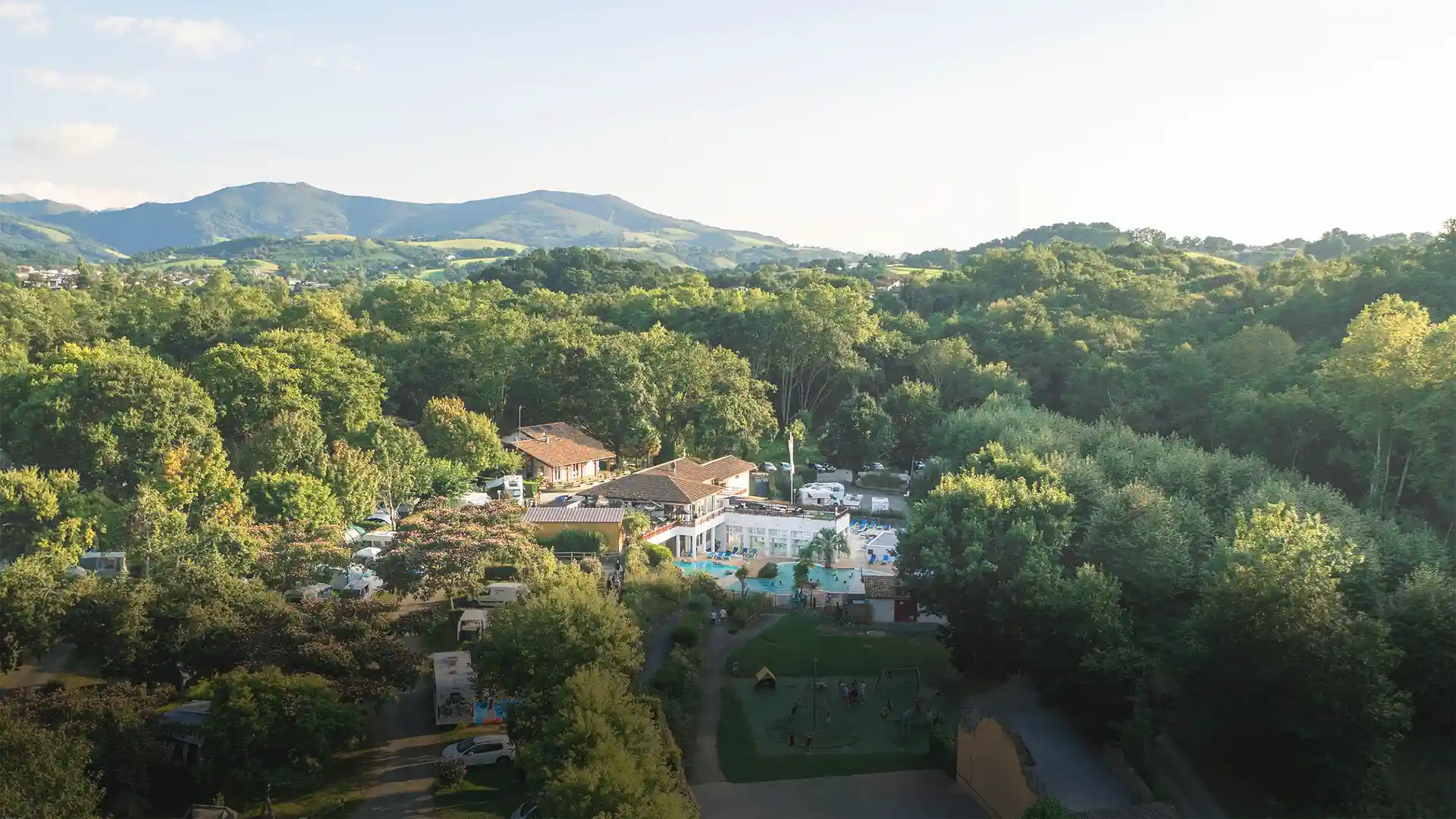Book your campsite for the Bayonne festivities!
While camping in the Basque Country this summer, don’t miss the Fêtes de Bayonne, taking place from Wednesday July 25 to Sunday July 29. For five days of popular jubilation, shows and free entertainment on the banks of the Nive and Adour rivers, nearly a million festayres dressed in red and white are expected. Founded in 1932 by a group of friends, this convivial and musical celebration of Basque culture and traditions has become the 5th largest popular gathering in the world. A must for your camping vacation in the Pyrénées-Atlantiques!

Opening ceremony and key toss
The official opening ceremony of the Bayonne Fêtes takes place on Wednesday in the Place de la Liberté in front of the Town Hall, starting at 9:50pm. Traditionally, the keys to the city are thrown to residents and festival-goers from the balcony of the town hall by King Leon, accompanied by a guest personality. The evening continues with the mascleta (sound fireworks), festive stages and a ball!
Karrikaldi: the heart of the party!
From Thursday to Sunday, the Karrikaldi, which means “around the street” in Basque, takes over the Place Jacques-Portes from 4pm. This is undoubtedly one of the most authentic and emotional moments of the Fêtes de Bayonne. All festival-goers vibrate in unison to the rhythm of Basque song and dance. At 7pm, the audience is invited to join in the fandango, arin arin, and mutxiko! The evening ends with the Karrikadantza, a traditional Basque Trad Ball!
Cow racing for thrill-seekers!
The famous cow races take place on Thursday, Friday and Saturday. For the occasion, the Place Paul Bert becomes an open-air arena where the bravest festayres join in the race. If antics aren’t your forte, it’s best to watch the show from behind the fences or on the bleachers with the kids.
Children’s Thursday and King Leon’s first wake-up call!
Thursday is traditionally children’s day. They can try their hand at Basque pelota, take their first Basque dance steps, applaud the bandas, gaiteros and txistularis (musical strolls through the streets), discover a host of fun activities at La Poterne, and wave to the giants of King Léon’s court as they parade through Greater Bayonne. Another highlight of the day is the Ttiki encierro, where children run in front of toros… made of wood, not forgetting the awakening of King Léon at the stroke of midday!
For those who love to party… but also to play sports!
The Fêtes de Bayonne also includes a number of sporting events, such as the Foulée du Festayre (a foot race from Biarritz to Bayonne), which attracts thousands of runners, and the Foulée du festayre txiki, a race for children starting on the Quai de Lesseps. Other sporting events include a schooner race, a pirogue race on the River Nive, rowing regattas, Basque pelota tournaments, Zumba, tango, salsa and flamenco activities… To recharge your batteries, you can also opt for a session of yoga or Qi Gong on the carreau des Halles! More spectacular than ever, the parachute jumping demonstrations of the Premier RPIMA are a dream for young and old alike!
What if we told you that King Leon really existed?
During the 5-day festival, King Leon keeps a constant watch over his followers. This giant puppet is the emblematic character of the Bayonne festivals. If you’re wondering about the origin of this strange character, you’ll have to go back to the 1950s, when the young members of the Batsarous banda, fed up with the queen of the festivities, found a new king in Léon Dacharry. A local figure at the time, Léon Dacharry was also one of the founders of the Fêtes de Bayonne, created in 1932. A few years after his death, he became a veritable icon, and his song “Oh Léon, Léon, Léon” did the rounds of France!
How to dress for the occasion?
The perfect festayre outfit consists of a white top and bottom. You’ll also need a red scarf and a red sash called a “cinta”, which will be tied on the left side. Don’t wear your scarf around your neck before the official holiday opening! The ritual is reversed for closing time, at midnight on Sunday evening.
We hope this has inspired you to celebrate and discover Basque traditions if you’re camping near Bayonne this summer!


